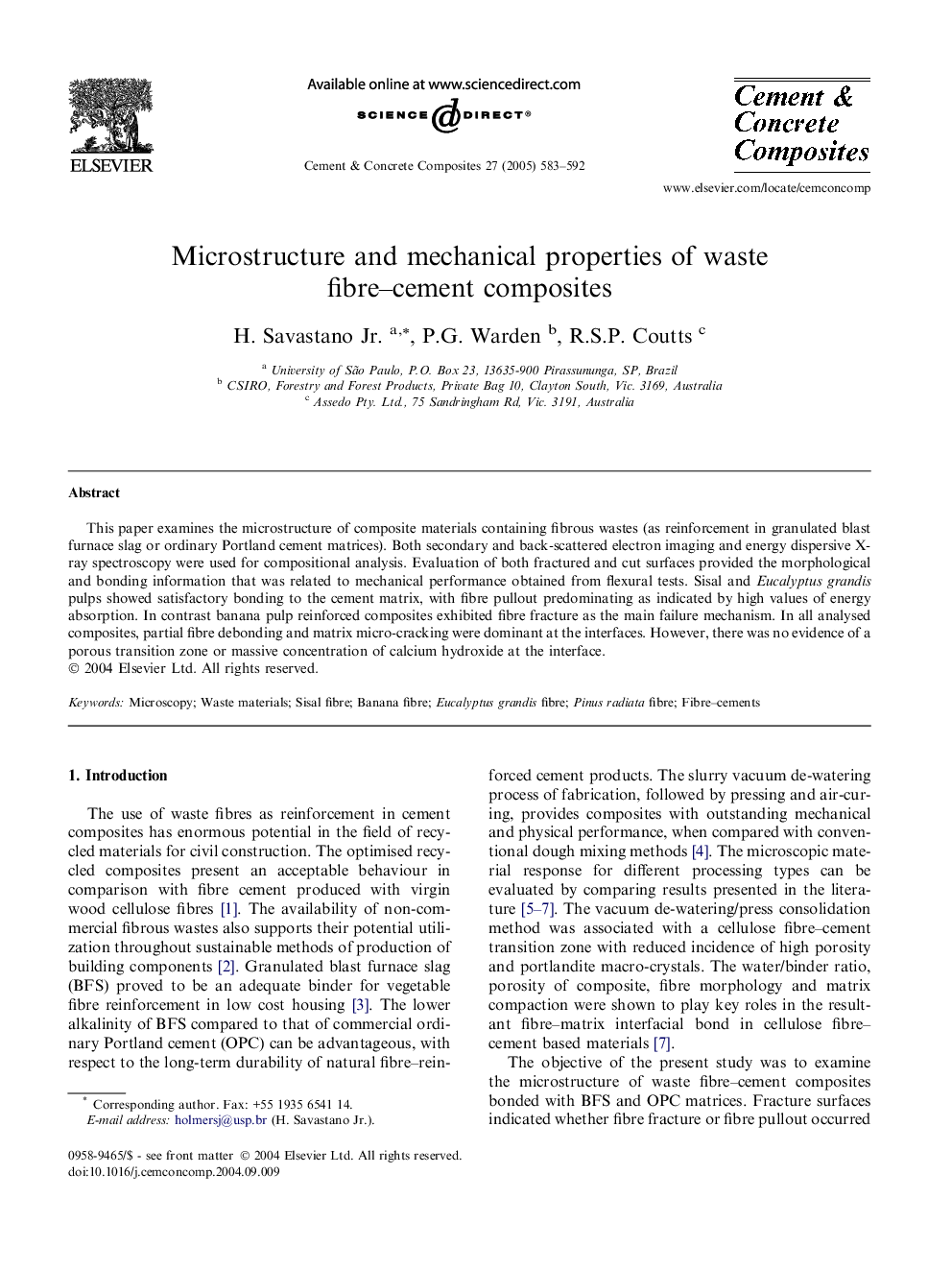| Article ID | Journal | Published Year | Pages | File Type |
|---|---|---|---|---|
| 10621984 | Cement and Concrete Composites | 2005 | 10 Pages |
Abstract
This paper examines the microstructure of composite materials containing fibrous wastes (as reinforcement in granulated blast furnace slag or ordinary Portland cement matrices). Both secondary and back-scattered electron imaging and energy dispersive X-ray spectroscopy were used for compositional analysis. Evaluation of both fractured and cut surfaces provided the morphological and bonding information that was related to mechanical performance obtained from flexural tests. Sisal and Eucalyptus grandis pulps showed satisfactory bonding to the cement matrix, with fibre pullout predominating as indicated by high values of energy absorption. In contrast banana pulp reinforced composites exhibited fibre fracture as the main failure mechanism. In all analysed composites, partial fibre debonding and matrix micro-cracking were dominant at the interfaces. However, there was no evidence of a porous transition zone or massive concentration of calcium hydroxide at the interface.
Related Topics
Physical Sciences and Engineering
Engineering
Industrial and Manufacturing Engineering
Authors
H. Jr., P.G. Warden, R.S.P. Coutts,
